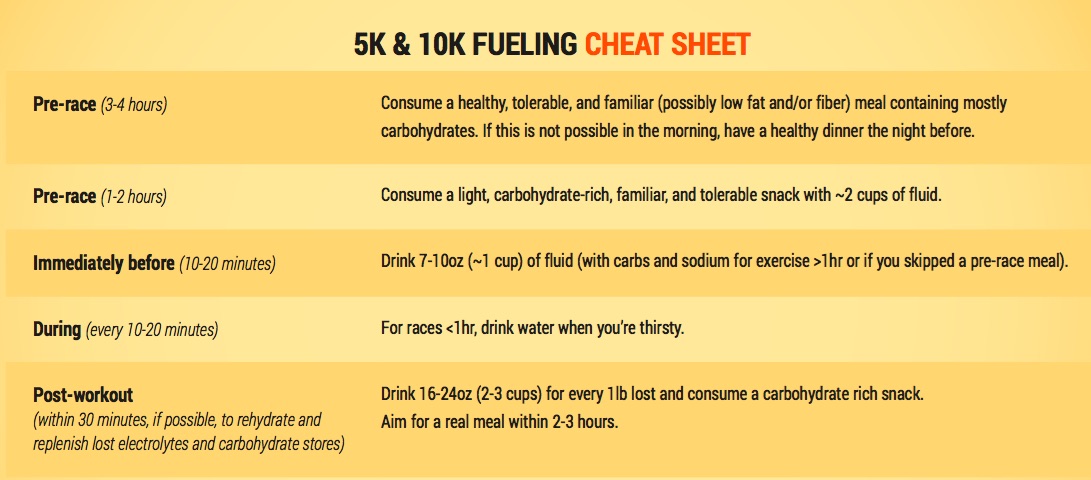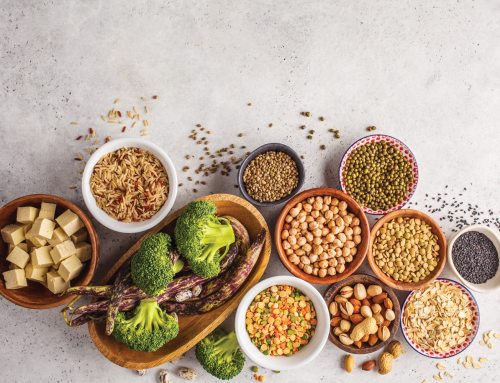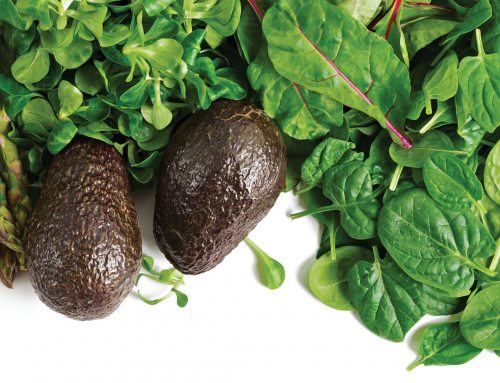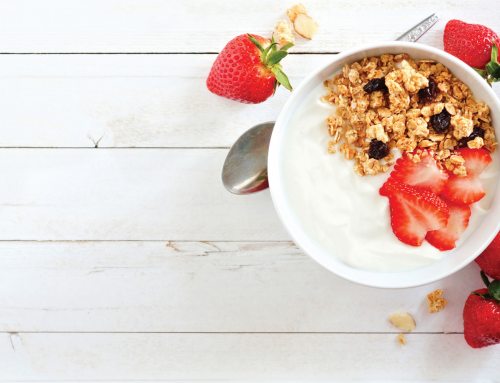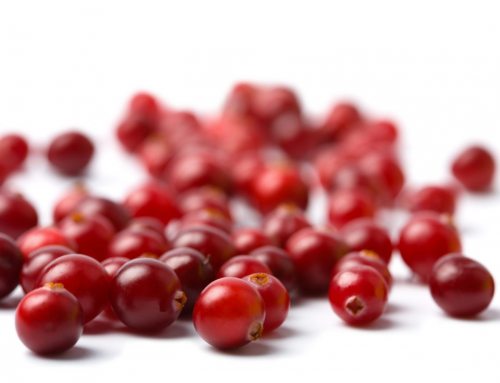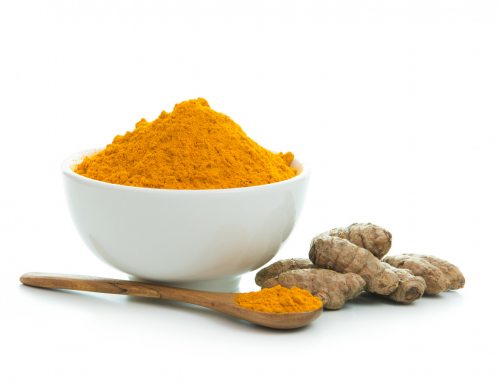By Chris Newport
With all the time you dedicate to running, hydration and a nutritious diet of real food is paramount to drive performance. However, fueling strategies are very individualized, differ based on race distance and should be tested prior to racing. In other words, you should “train to fuel” and “fuel to train”.
Since 5K and 10K events are relatively short distances, you should be able to push yourself hard. For these high intensity races, most of the energy used is from glycogen (carbohydrate “reserves”) or from the food and drink consumed before your race. So, prior to your race, you will want to ensure your glycogen is sufficiently “topped off” to provide you with quick energy.
The longer you have until race time, the more you can eat and vice versa. About 3-4 hours before, consume a healthy, tolerable, and familiar meal of mostly complex carbohydrates like yogurt and berries, oatmeal with raisins, rice and beans, bagel and peanut butter, or pasta and sauce. If you have a sensitive GI tract, consume low-fat or low-fiber foods. Trial your strategy in training so you know what works best for you.
Many races start very early in the morning, and it may not be possible to consume a meal before the gun goes off. If this is the case, have a healthy, balanced dinner the night before such as a protein, sweet potatoes, and green beans. If possible, 1-2 hours before the race, consume a light, familiar snack with about 2 cups of fluid. Some experience a drop in blood sugar (hypoglycemia) at race time with this strategy, so test it out in training first. If you’ve experienced hypoglycemia, skip the pre-race meal and drink 7-10 oz of your favorite carbohydrate-containing, full strength sports drink, or something like a gel and water, about 10-20 minutes before starting.
When running for 15-45 minutes and you are well fueled and hydrated going into the race there’s no need for carbohydrates or fluid, unless you’re thirsty. If a 10K will take you longer than 45 minutes, consider fueling with a carbohydrate-containing sports drink, sipping on it at regular 10-20 minute intervals throughout the race. If you don’t like sports drinks, you can achieve the same effect with water and supplemental carbohydrates (gels, bananas, or dates) and electrolytes (salt sticks). While it’s not necessary to have carbohydrates in events shorter than 1 hour, there could be a small performance benefit.
When finished, especially if you’re going to train and race in the following days, then you will want to replace lost fluid, electrolytes, and carbohydrate stores. Drink 2-3 cups of fluid for every pound of body weight lost from your favorite sports drink, soda, or chocolate milk. Maybe try water and carbohydrate- and electrolyte-rich foods like bananas, pretzels, oranges slices, or potato chips.
Whether you’re new to running or a seasoned veteran, have fun experimenting with your fueling and hydration plan in training. Find what works best for you, eat well, and stay hydrated for your best race performance!
# # #
Chris Newport, MS, RDN/LDN, EP-C, CISSN is a Registered Dietitian, Certified Sports Nutritionist, coach, exercise physiologist, mom, and real-food advocate. She founded The Endurance Edge, an integrative performance center in Cary, NC offering metabolic testing, sweat testing, nutrition, massage, physical therapy, sport psychology, endurance coaching and more. Get your free hydration guide online at www.TheEnduranceEdge.com. Find her on Twitter or Pinterest @CoachChris_RD, YouTube or Facebook @TheEnduranceEdge, or Instagram @YourEdgeNC.


